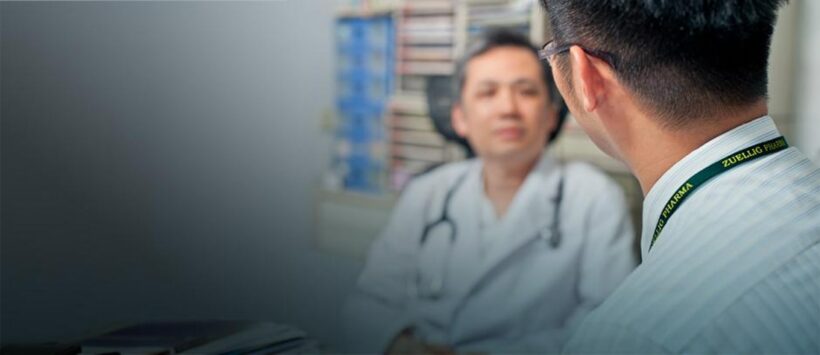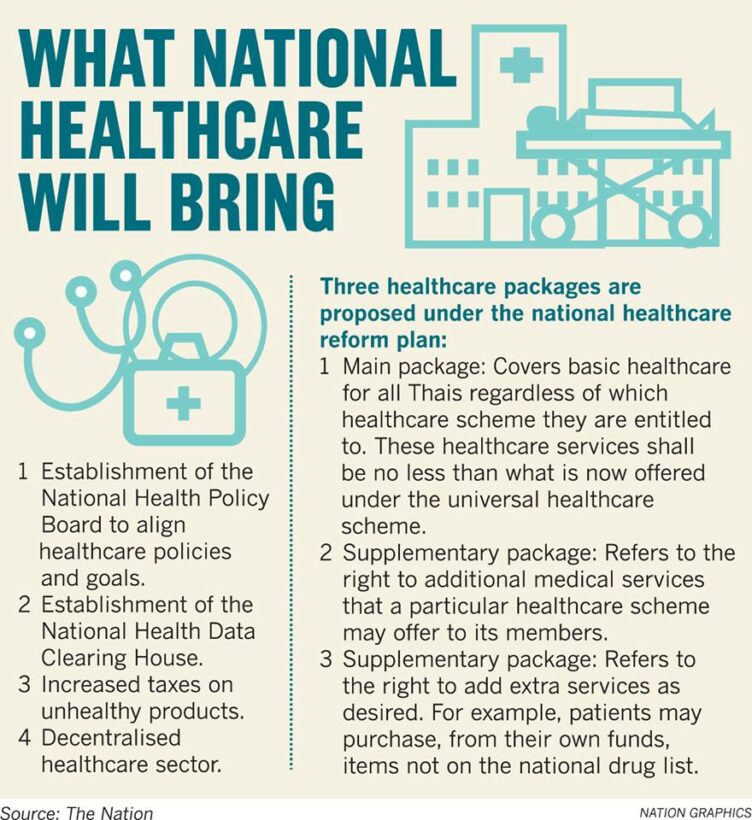Thais likely to pay more for health under new reforms

A part of of the country’s upcoming national healthcare reform, Thais will definitely have to pay more for any extra medical services or medicines they want.
Dr Seree Tuchinda, who heads the national healthcare reform committee, says, “for example, if you want medicines that are not on the national drug list, you will be charged.”
Seree said the reform will present three healthcare packages.
The first one will offer basic healthcare for all Thais, regardless of what level of healthcare they are currently entitled to. Coverage under this package will be no less than that under the universal healthcare system now available for 48.8 million people.
The second package will present the additional medical services that each major state-supported healthcare scheme wishes to provide to its members.
The third package will offer medical benefits that people will get only when they pay extra under a co-payment scheme.
“The details of these three packages will become clear and definite within the next year,” Seree said.
However, Kannikar Kijtiwatchakul, who sits on the National Health Security Board, attacked this plan.
“It’s a reform planned by a certain group of people for their own group’s interests,” she said.
Kannikar said she suspected the reforms would mean that there would no longer be any free medical services for Thais. At present, the country’s universal healthcare scheme offers most types of medical treatments for free. Seree, meanwhile, downplayed concerns that these new packages would hurt the benefits Thais now enjoy, saying that fairness and risks of medical bankruptcy would be taken into consideration.
“In the event of co-payment, we will set the ceiling of what Thais will have to pay each year,” he said. “We will also ensure that local administrative bodies help the poor, at least partially, regarding the cost of treatments.”

Seree said that some people might oppose the concept of national healthcare reform because they thought they would lose some benefits.
“But it’s necessary that we go with the concept that will benefit the majority. We need to take into account the fact that the government cannot fully pay for everyone’s medical costs. We need to be realistic,” he said.
Dr Churdchoo Ariyasriwatana, an adviser to the association protecting civil servants’ medical rights, agreed with the concept of making three packages available.
“People must realise that there are no free things in this world. They can get basic healthcare for free, but if they want more than that, they have to accept co-payment,” she said. Churdchoo also believed that people would take better care of their health if they were aware they would have to pay a medical bill.
Asst-Professor Dr Thira Woratanarat, who teaches at the Chulalongkorn University’s Department of Preventive and Social Medicine, said medical costs would continue to climb in the face of increasingly advanced medical technologies. He noted that even rich countries could not afford to provide completely free medical services to their people.
“The government cannot pay for medical treatments of all its citizens. At one point, sooner or later, it will find that it doesn’t have enough money to do that,” he said.
Universal healthcare for Thais was established in 2001.
“In 2001, Thailand introduced the Universal Coverage Scheme (UCS). It’s described as “one of the most ambitious healthcare reforms ever undertaken in a developing country” in the book Millions Saved: New Cases of Proven Success in Global Health. The UCS, which spread to all provinces the following year, provides outpatient, inpatient and emergency care, available to all according to need. By 2011, the program covered 48 million Thais, or 98% of the population.”
ORIGINAL ARTICLE: The Nation
Latest Thailand News
Follow The Thaiger on Google News:


























